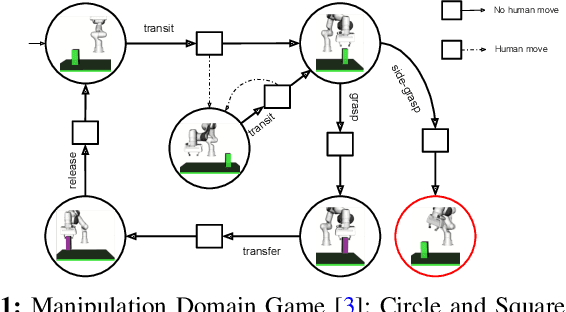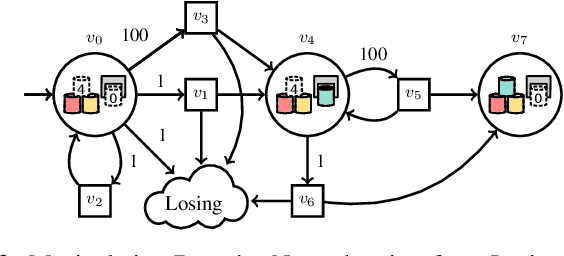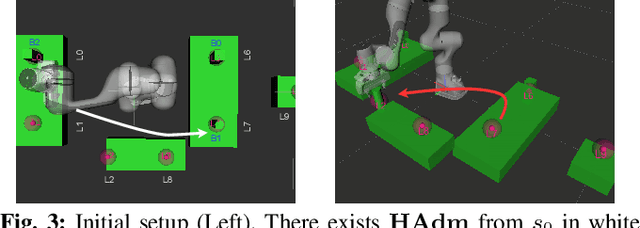Admissibility Over Winning: A New Approach to Reactive Synthesis in Robotics
Paper and Code
Oct 06, 2024



Reactive synthesis is a framework for modeling and automatically synthesizing strategies in robotics, typically through computing a \emph{winning} strategy in a 2-player game between the robot and the environment. Winning strategies, however, do not always exist, even in some simple cases. In such situations, it is still desirable for the robot to attempt its task rather than "giving up". In this work, we explore the notion of admissibility to define strategies beyond winning, tailored specifically for robotic systems. We introduce an ordering of admissible strategies and define \emph{admissibly rational strategies}, which aim to be winning and cooperative when possible, and non-violating and hopeful when necessary. We present an efficient synthesis algorithm and demonstrate that admissibly rational strategies produce desirable behaviors through case studies.
 Add to Chrome
Add to Chrome Add to Firefox
Add to Firefox Add to Edge
Add to Edge